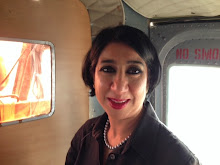This year I wrote a presentation at the suggestion of Mohamed Sheikh, a member of the House of Lords who has a special interest in Indian politicians. His team had been searching for information on the first Indians to sit in Parliament, which in some instances, was quite sparse. From archives and libraries at Westminster, illustrations and data were collated and I began to piece together a jigsaw about the first four Indian Parliamentarians in the United Kingdom. To the best of my knowledge, no-one has juxtaposed this quartet before.
Three of the four were from the Parsee community. Perhaps the best known is the first, Dadabhai Naoroji, who was elected as a Member of the Liberal Party to the House of Commons in 1892. His portrait is displayed in the Central Lobby. Naoroji was raised by a widowed mother from the age of four. He is described as the founding father of Indian Nationalism, the Indian National Congress; and was a mentor to Gandhi.
Sir Mancherjee Bhownagree, pro-British and a Conservative, took a working-class area from the Liberals in 1895. He donated money to build part of Imperial College, London University.
Lord Sinha of Raipur, President of the Indian National Congress, was the first Indian in the House of Lords. He was elevated in 1919. There he navigated a bill transferring administrative power from the Governor-General to an Indian legislature.
Perhaps the most interesting of the four was Shapurji Saklatvala, who was born into the wealthy Tata family. Bubonic plague was rife during that period in Bombay, and the young Saklatvala spent much time in plague hospitals and slums caring for the needy. He was heavily influenced by a Russian bacteriologist whom he worked with, and decided that communism was the solution to the poverty, overcrowding and unsanitary conditions he found around him. In Britain, he joined the Labour Party and was elected to Westminster in 1922.
He supported working people, the Miner’s Federation, and Indian Independence. The British Battalion which fought during the Spanish Civil War was known as the Saklatvala Battalion.
Sunday, 12 April 2009
Subscribe to:
Post Comments (Atom)


No comments:
Post a Comment